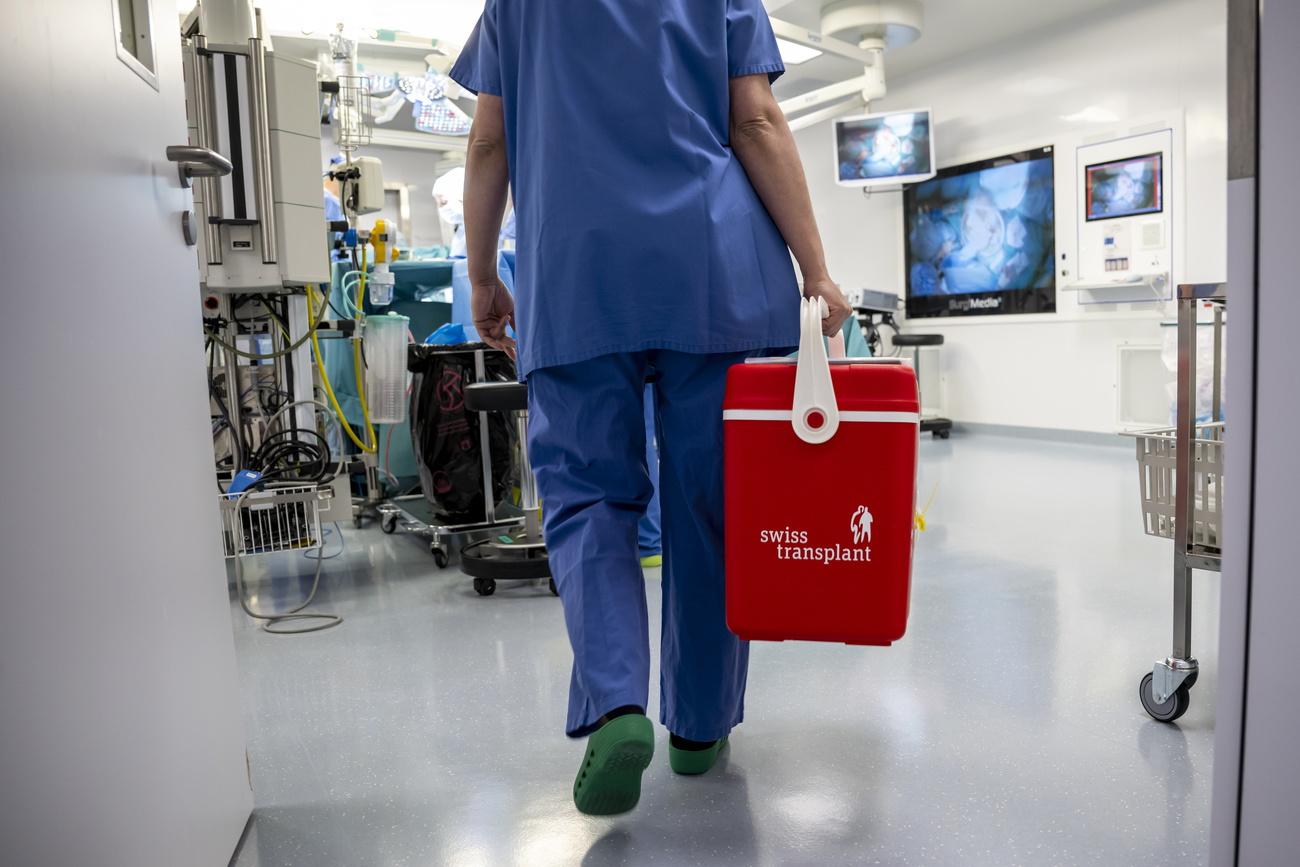
Four out of five donor hearts for Swiss children come from abroad

Four out of five donor hearts which are transplanted into Swiss children come from outside the Alpine country, according to the director of Swisstransplant.
+ Get the most important news from Switzerland in your inbox
The mortality rate of children who need a donor heart has fallen to 15%, Franz Immer, the director of Swisstransplant, told the Tages-Anzeiger newspaper on Saturday.
When he started at the organisation around 16 years ago, the mortality rate for children who needed a donor heart was still 80%.
+ Why the Swiss are donating more organs for transplant
Between 350 and 400 organs are listed on the European platform of the European organisation Foedus every year, Immer said. The most common organs are hearts, followed by lungs and livers. The organisation was founded because it is often not possible to find a recipient, especially for children in their own country.
Four hours transport
Last year, Switzerland imported 45 organs and exported 26 organs, said Immer. The aim is to keep exports and imports in balance. Transporting an organ costs around CHF20,000, depending on the distance. “It shouldn’t take more than four hours to transport a heart,” said Immer.
+ Organ donation: lifting the burden on those left behind
He explained that a heart transplant costs around CHF150,000, while a kidney transplant costs CHF60,000. Dialysis, on the other hand, costs CHF100,000 a year. “With 300 transplants, the potential savings amount to half a billion francs per year,” Immer estimates.
All-time high
Last year, more organs were donated in Switzerland than ever before. A total of 675 people on the waiting list received an urgently needed organ in 2023.
In 2022, the Swiss electorate approved the so-called extended opt-out solution. It is expected to come into force in 2026. This means that all people who have not refused to donate an organ during their lifetime will be considered organ donors. A person’s relatives can still prevent the removal of organs.
Translated from German by DeepL/sb
This news story has been written and carefully fact-checked by an external editorial team. At SWI swissinfo.ch we select the most relevant news for an international audience and use automatic translation tools such as DeepL to translate it into English. Providing you with automatically translated news gives us the time to write more in-depth articles.
If you want to know more about how we work, have a look here, if you want to learn more about how we use technology, click here, and if you have feedback on this news story please write to english@swissinfo.ch.

In compliance with the JTI standards
More: SWI swissinfo.ch certified by the Journalism Trust Initiative































You can find an overview of ongoing debates with our journalists here . Please join us!
If you want to start a conversation about a topic raised in this article or want to report factual errors, email us at english@swissinfo.ch.